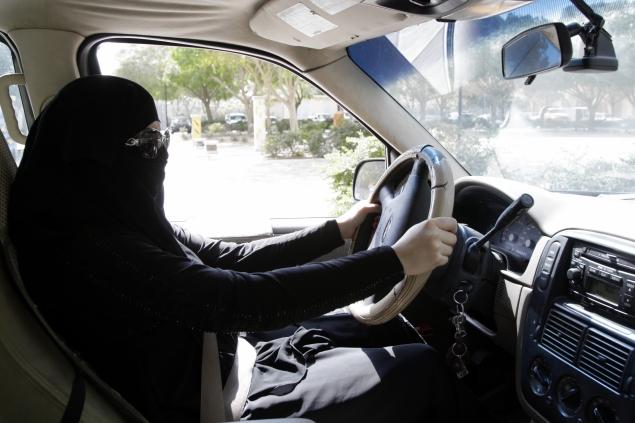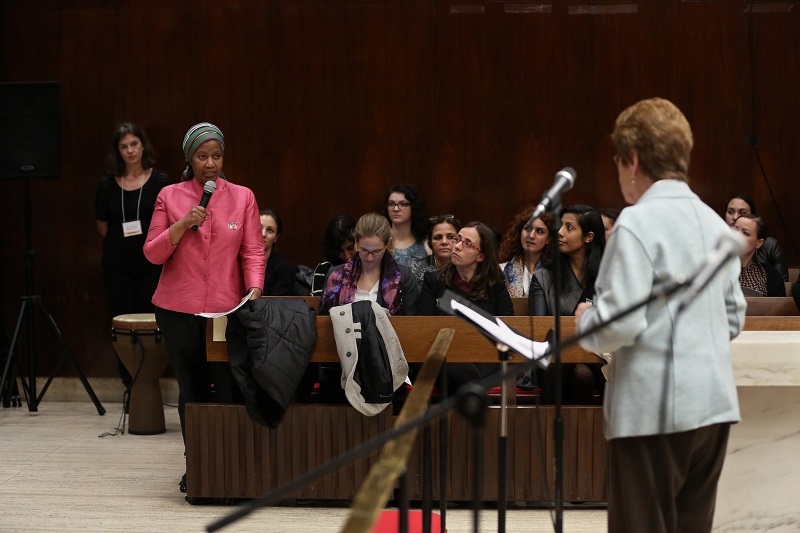The UN Commission on the Status of Women concluded its 60th session on March 24, 2016, ending a two week series of panels, discussions, presentations, and proposals. Throughout a number of different events attended by Member State representatives, UN actors, and a number of NGOs, CSW60 focused largely on linking women’s empowerment to the UN’s sustainable development goals and eliminating violence against women.
The overarching theme of the Commission’s session was building on UN Women’s mission to illuminate the necessity of gender equality to the success of the UN’s 2030 Agenda for Sustainable Development and the importance of sustainable development for women in general. On top of developing new strategies and policies to achieve those development goals, however, CSW60 introduced a number of new initiatives focused more on bringing gender issues to the public’s awareness — a strategy that could be essential to the overall success of both gender-based and sustainable development initiatives.
UN Women took CSW60 as an opportunity to draw in the formal support of Prime Minister Justin Trudeau in gender issues. Trudeau, a relatively new head of state who has achieved celebrity-status among millennial demographics all over the world, is already known for his outspoken support of feminism and could be a valuable advocate in bringing gender equality on a more institutional level. In a conversation with the Prime Minister and ABC news anchor Sade Baderina, UN Women Executive Director Phumzile Mlambo-Ngcuka highlighted how valuable it was to have Trudeau create a 50-50 balanced cabinet, saying “those who have authority and power especially, they must lead [gender equality] from the front.” Prime Minister Trudeau was then invited to join the HeForShe campaign, which strives to make gender rights a societal movement advocated for by all genders.
Additionally, the Step it Up for Gender Equality Media Compact initiative was announced during CSW60. This initiative is a unique strategy on the part of UN Women. Divisive gender roles can be difficult to combat because they are institutionalized and reinforced by daily media. By instigating change directly at the source disseminating current gender beliefs, the push for change and development will become part of society’s expectations. This, in turn, may lead to more action on the part of policymakers and institutions in fulfilling expectations for better gender equality.
UN Women wants media companies to combat gender equality and women’s issues on two fronts: ending women’s stereotype and biases in reporting, and increasing women in media leadership. Media companies who sign the Compact are committing themselves to “championing women’s rights and gender equality issues through editorial articles; ensuring inclusion of women as sources in stories produced, aiming for gender parity; adopting a gender-sensitive Code of Conduct on Reporting; and ensuring women journalists are provided mentors and guidance for career advancement.” This is a global initiative that has already been signed by 35 media groups in Africa, the Arab States, Asia-Pacific, Europe and Latin America.
CSW60 also discussed more substantive issues in regards to women’s rights and sustainable development. The UN Women’s Fund for Gender Equality discussed research about how women were affected by living within “fragile” states (those seriously affected by climate change, natural disasters, or conflicts). 70 percent of the population within fragile states are women and children, highlighting the serious need to address development issues more effectively.
While Member States, the UN, and other NGOs could focus solely on economic and technological improvements to solve issues of development, that would only introduce development on a basic level. In order to be efficient and achieve development to its utmost, women must be included in development itself – and that begins with “empowering women in fragile settings.” In response to the Fund for Gender Equality research, UN Women identified four pillars that must be developed to achieve that goal: productive resources, institutional relations, personal resources and interpersonal relations.
A number of other international commitments and obligations were addressed throughout the CSW60, including the removal of gender-based discriminations in legislation, jobs, and economic resources. An unedited advanced copy of the CSW60’s agreed conclusions can be found online, reaffirming the UN’s commitment to both gender equality and sustainable development goals and introducing greater obligation towards integrating gender-equality in development implementation.
Overall, UN Women has begun to address something that is often overlooked in the social campaigns in first world countries (particularly Canada and the US): feminism and gender equality are not strictly “value” issues between individuals and overall society. It is a force that impacts even the most basic natural and societal necessities for security for both women and men. As UN Women continues to tie gender issues to development, we, as privileged individuals in Canada who are living in a country that has already developed, have to keep in mind the full weight of what “feminism” means to those all over the world.




